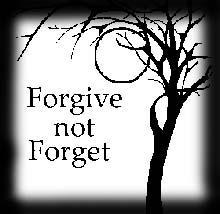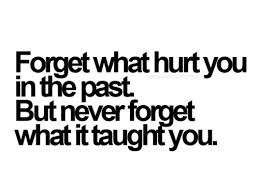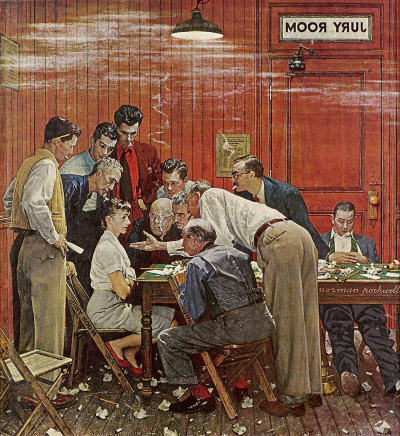 This past month has been a maelstrom of angst for a lot of people. Maybe it was the supermoon we had last week. Or maybe it was everybody getting back into the after-summer routines. Kids back to school. School buses clogging up normally simple commutes. Bills coming in from that two-week vacation back in early August. These things can really stack up.
This past month has been a maelstrom of angst for a lot of people. Maybe it was the supermoon we had last week. Or maybe it was everybody getting back into the after-summer routines. Kids back to school. School buses clogging up normally simple commutes. Bills coming in from that two-week vacation back in early August. These things can really stack up.
Whatever triggered it, a lot of people in my world, myself included, felt “victimized” by something or someone, and we were mad about it. We’ve all reached a breaking point at some time or another, where we’ve just had enough. Anger becomes the reaction of choice. But it’s not the only option—or the best one.
So what happened this past month, exactly? Did people offend me by blaming me for something? Did they accuse me of something I know to be inaccurate? Did they set me up? Was I the victim of a NIGYYSOB (now I got you, you son of a bitch) game? Pick one. They all happened to me. And to several of my acquaintances.
No question, there are times when someone genuinely does us wrong. But even when there isn’t a clear transgression, it’s not beyond most of us to invent one. I know that generally speaking, when I’m having a pity party, retelling the story to anyone who’ll listen—or just mumbling it to myself—I always seem to be able to find someone responsible for my plight (and funny thing, it’s never me!). My ire seems to need a focus. “If she hadn’t (fill in the blanks), then I wouldn’t have (fill in some more blanks).”
Most of the time, people have an easier time blaming other people than blaming themselves. They can project onto those around them all the poison they’re feeling. You may have heard the expression “It’s not you, it’s me.” And I’ve observed that it usually is.
As the person casting aspersions upon my fellow man, I try to do what I coach others to do and observe myself in this activity. When I catch myself, I can actually watch the self-talk (that mumbling of the story that perpetuates the poison) unfold like a movie. Seeing it that way, I can actually decide not to take my drama any farther. And then I can go one better.
Eckhart Tolle argues that there are only three responses we can have to any situation that don’t contribute negatively to karma: accept it, enjoy it passively, or engage in it enthusiastically.
When I first came across this way of thinking, all of these seemed counter to what I needed to do in a bad situation. My comfort zone was to feel anger, resentment, a need for retribution. But through repeated trials, I have gradually discovered that “accepting it” is a possible choice. Something I can decide to do.
And this conscious reaction to a negative occurrence seems to work out better than the one I would normally default to. It’s gotten easier to have a “turn the other cheek” reaction instead of a “get even” reaction. I don’t miss the latter, either. I can get on with my day (or life) more quickly when I don’t eat up emotional resources by being upset and buying into my own drama.
Sometimes, this process of self-observation lets me actually enjoy the scene that is being played out. I see the violator (instigator) and the victim (me) as actors in a scene. Amusing. Funny how when we look at our drama from the outside, it can take on all the qualities of a soap opera.
Now here’s where the true clarity emerges. When I can bring myself to reach into the scene and actively engage in my restraint (enthusiastically!), I find that I forgive, on purpose, and do not forget—because it’s a lesson, and I can improve my life moving forward. This level of response frequently leads to a greatly improved relationship with the instigator. Several years ago, I penned an article titled “The Temporary State of Enemy-ness.” If we know that our ire is going to be short-lived, why not make it even shorter…and eventually just give it up immediately?
Am I successful at this all the time? Nope. Some things just piss me off. I am still a student of this stuff. Lessons are being learned. Kaizen. Incremental improvement, grasshopper.



